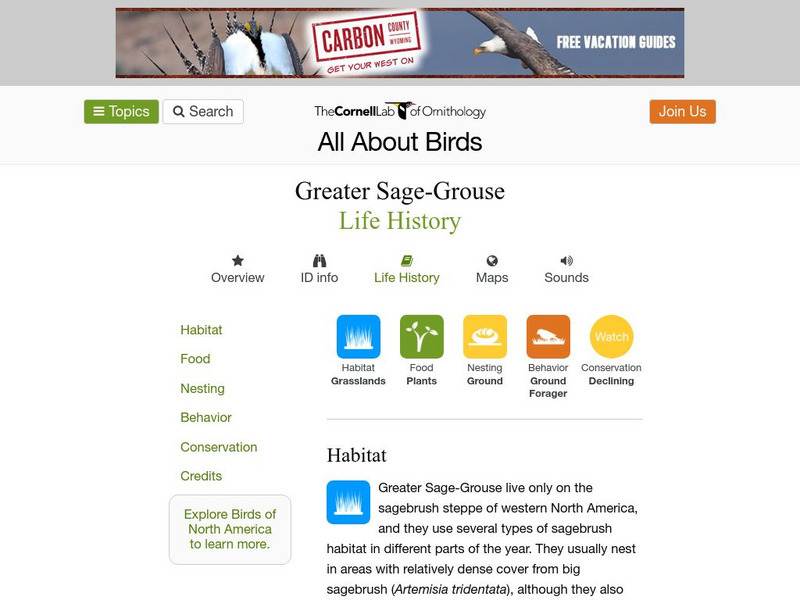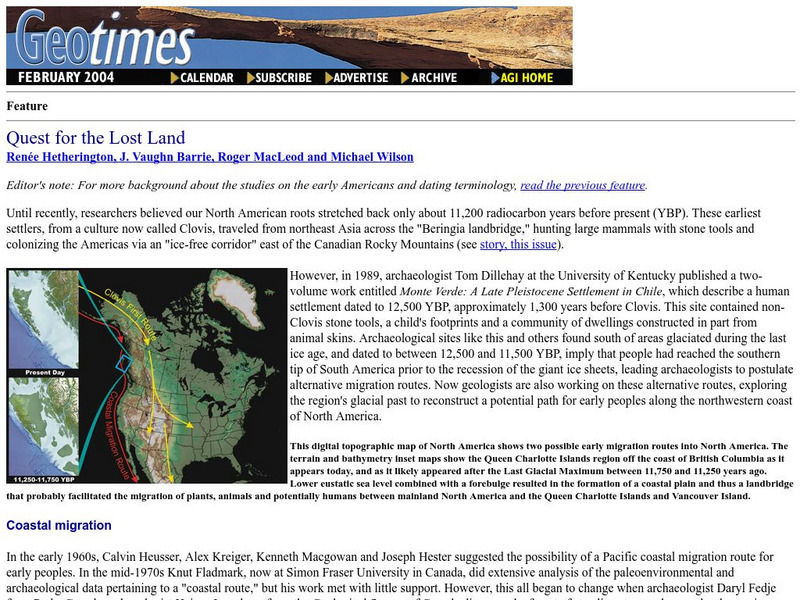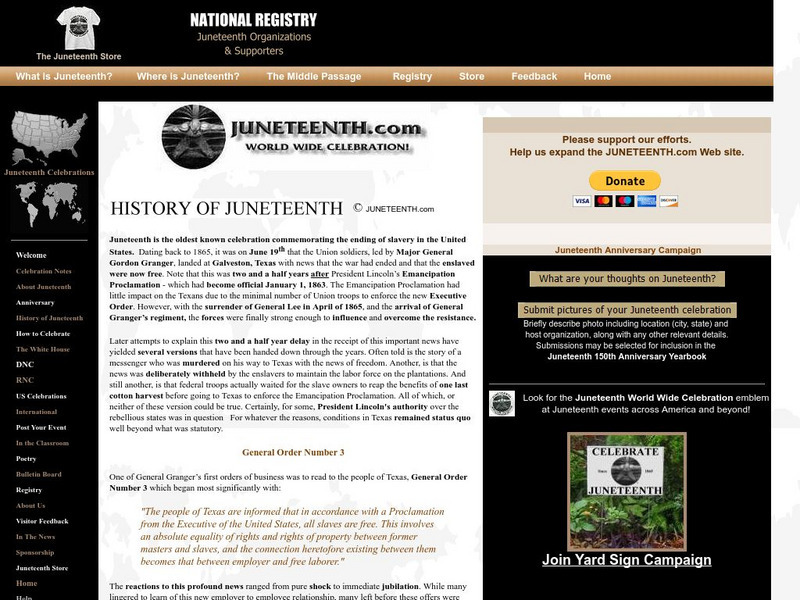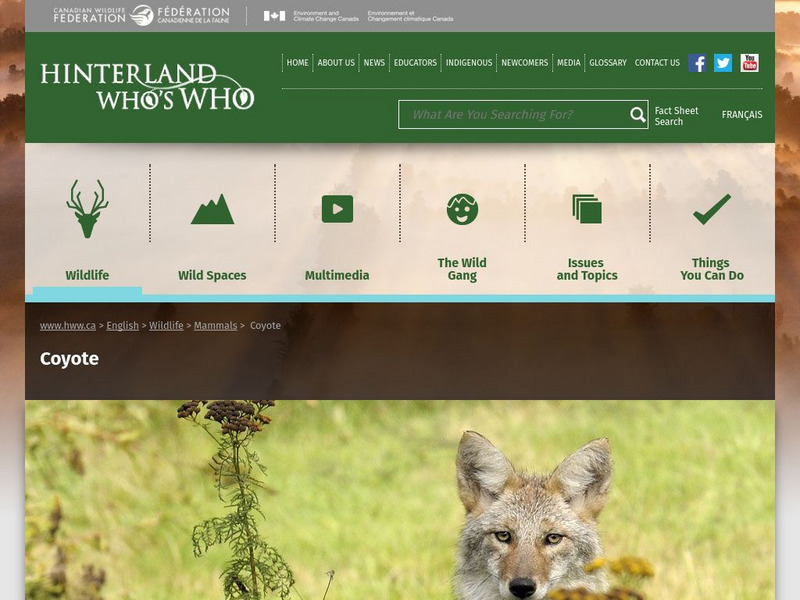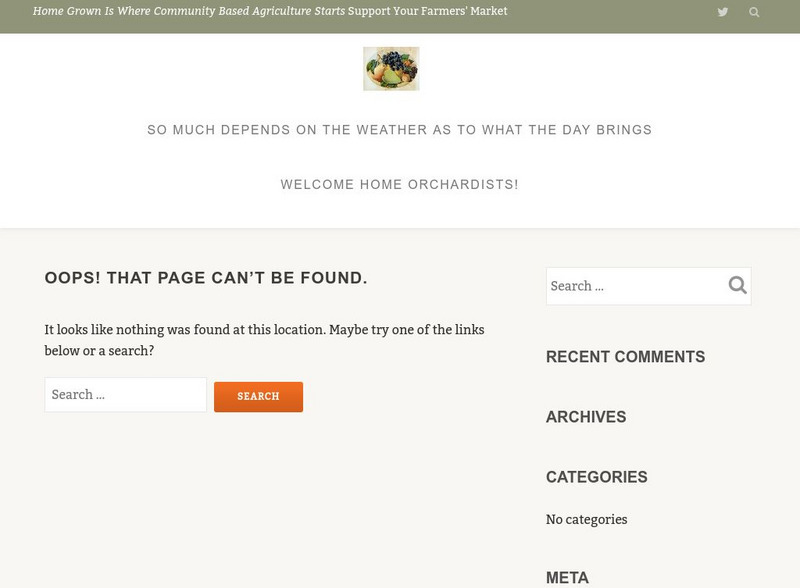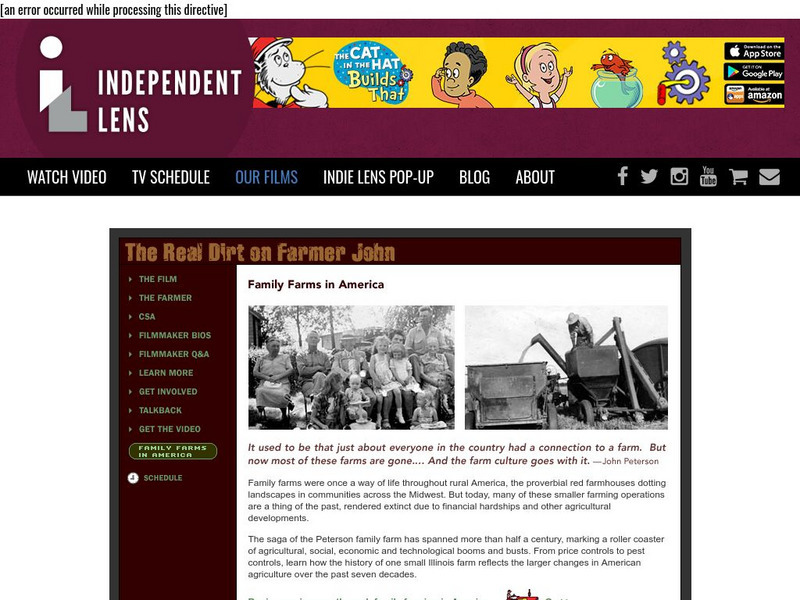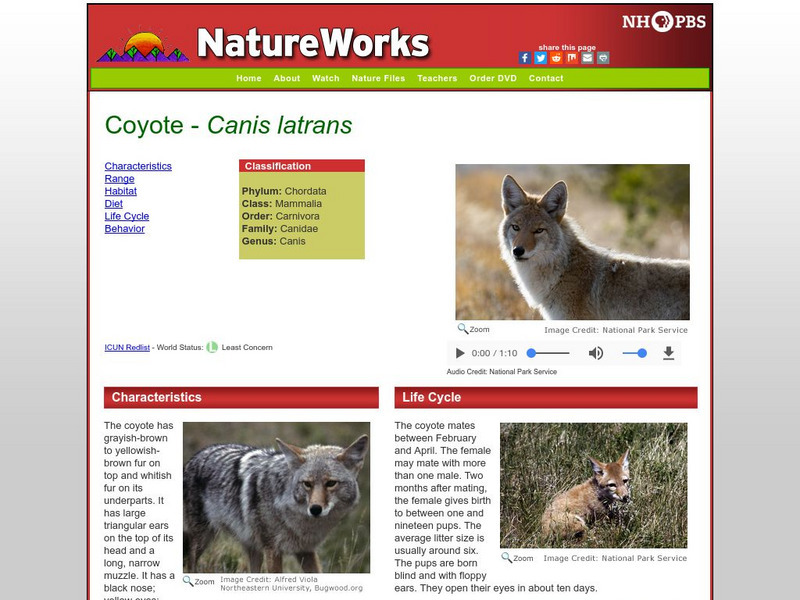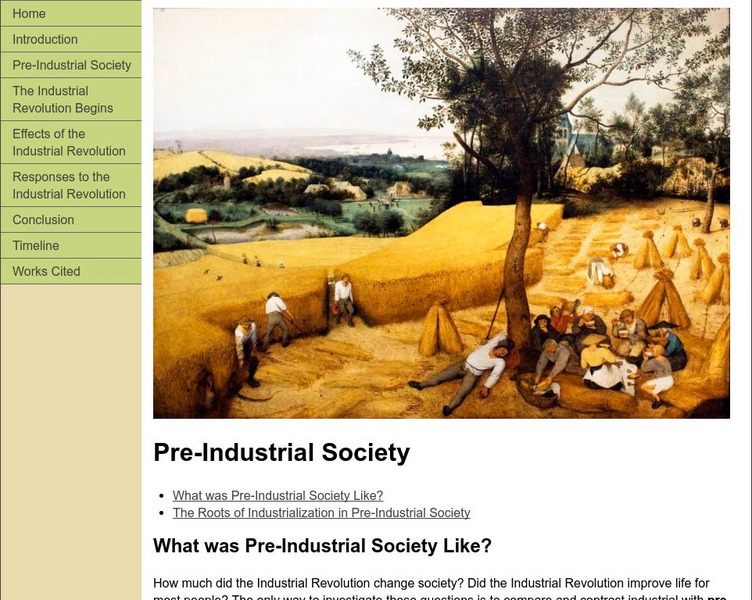Hi, what do you want to do?
Cornell Lab of Ornithology
Cornell Lab of Ornithology: Greater Sage Grouse
This detailed site provides an excellent overview of the largest grouse species in North America. Topics include: cool facts, description, range, habitat, food, behavior, reproduction, and conservation status. Listen to the sounds of...
Cornell Lab of Ornithology
Cornell Lab of Ornithology: Osprey
This detailed site features an abundance of facts, pictures, and sounds of one of the largest birds of prey in North America. A menu highlights the following topics: cool facts, description, range, habitat, food, behavior, reproduction,...
Other
America's Homepage: The Quartering Act of 1765
Read the full text of The Quartering Act of the British Parliament in 1765, which required colonists to provide food and shelter for soldiers.
Other
Geo Times: Quest for the Lost Land
A discussion of a migration theory of Paleoindians that went down the west coast of North America. Read about food sources, the geology, and the research behind the theory.
PBS
Pbs Teachers: Fast Fats: An Analysis of America's Obsession With Fast Food
Analyze parts of a food label, and determine the amount of fat and calories in average foods. Conduct an observational experiment and examine the food choices of classmates.
Other
Juneteenth.com: History of Juneteenth
Juneteenth.com discusses what Juneteenth is, its history, and its celebration. Content includes a look at why June 19, 1865, signifies the end of slavery in America, as opposed to Lincoln's Emancipation Proclamation of January 1, 1863.
Countries and Their Cultures
Countries and Their Cultures: Quechua
Provides an overview of the traditional culture and lifestyle of the Quechua people who live in the central Andes region of South America. Gives basic facts about location, language, folklore, foods, social customs, family life,...
NPR: National Public Radio
Npr: The Causes Behind Hunger in America
This resource discusses hunger in America and explores the reasons behind it. In question and answer form, discussions include housing costs, poverty, food insecurity, and the many other problems the poor face. (Published Nov. 22, 2005)
Canadian Wildlife Federation
Hinterland Who's Who: Coyote
Get the facts about coyotes. Besides finding a detailed description of the coyote, you'll also learn about some of its unique facts and characteristics. Also included in this Mammal Fact Sheet on coyotes is information on their habitat...
PBS
Pbs Nature: Beavers
Can you name the largest rodent that lives in North America? The beaver happens to be the correct answer. Explore this brief but interesting resource to learn where beavers live, what they eat and how they socialize.
Other
American Academy of Allergy, Asthma and Immunology
This resource describes an organization that is involved in studies and treatments of allergies. Research and education are also important parts of this organization.
Michigan State University
Michigan State University: Digital Center: Feeding America
Digital database of American cookbooks from the eighteenth, nineteenth, and twentieth centuries provides insights into the social history of Americans across three centuries through a consideration of women's labor in the household,...
Other
Fruit From Washington: Crop Harvests at Home in America in World War Ii
This site is filled with posters from World War II, the Great Depression, and World War I which encouraged using food wisely, growing victory gardens, and helping harvest the crops on commercial farms.
PBS
Pbs: Who Made America?: Innovators: Ray Kroc
One-page profile of influential innovator, Ray Kroc, "fast food's founding father", whose vision and ideas launched the successful McDonald's franchise.
National Constitution Center
National Constitution Center: We the Civics Kids
Is America more like a melting pot or tossed salad? See if you can answer that question after reading "We the Civics Kids" which focuses on the diversity of cultures that make up America. Learn about different foods, languages, and...
BBC
Bbc News: Week of 3 11 13: The Children Going Hungry in America
This article about child hunger in the United States features the story of two young children in Iowa who often do not have enough to eat. The article includes a link to charity that helps those in need of food and a brief video. [1:59]
A&E Television
History.com: The Apollo Mission That Nearly Ended With a Mutiny in Space
There were arguments over food, helmets and spacesuits that required 30 minutes for astronauts to use the bathroom. By 1968, America's space program was on the brink. A launchpad fire at Cape Canaveral killed three astronauts as they...
Other
Native Peoples of America: Adena
An informative look at the Adena culture and their burial mounds, food resources, and artifacts found in the burial mounds.Find links to additional information on the web about this early Native American culture.
PBS
Pbs Teachers: The Real Dirt on Farmer John: Family Farms in America
Trace the evolution in American agriculture with this interactive timeline. Learn how the history of one small Illinois farm reflects the larger changes, decade by decade.
Cornell Lab of Ornithology
Cornell Lab of Ornithology: California Condor
This detailed site contains a wealth of factual information about the largest flying bird in North America. Topics include: cool facts, description, range, habitat, food, behavior, reproduction and conservation status. In addition, the...
Alabama Learning Exchange
Alex: Zagat's Guide to the Columbian Exchange
This is a unit plan designed for a class that meets for approximately 60-96 minutes. It is also recommended that this project be used to conclude a unit that covers European exploration and the Columbian Exchange. Students will work...
Wikimedia
Wikipedia: Culture of Costa Rica
Readers will learn about the music, food, language, religion, art and other aspects of Costa Rican culture.
PBS
Nh Pbs: Nature Works: Coyote
Explore the world of the Coyote through this educational resource. This site features information on coyotes ranging from characteristics, diet, reproduction, range, habitat, and behavior.
Other
Modern World History: Pre Industrial Society
In this textbook unit, students learn about what society and the standard of living were like prior to the Industrial Revolution. The average peasant grew their food and kept farm animals. Change took place much more slowly, but the rate...





